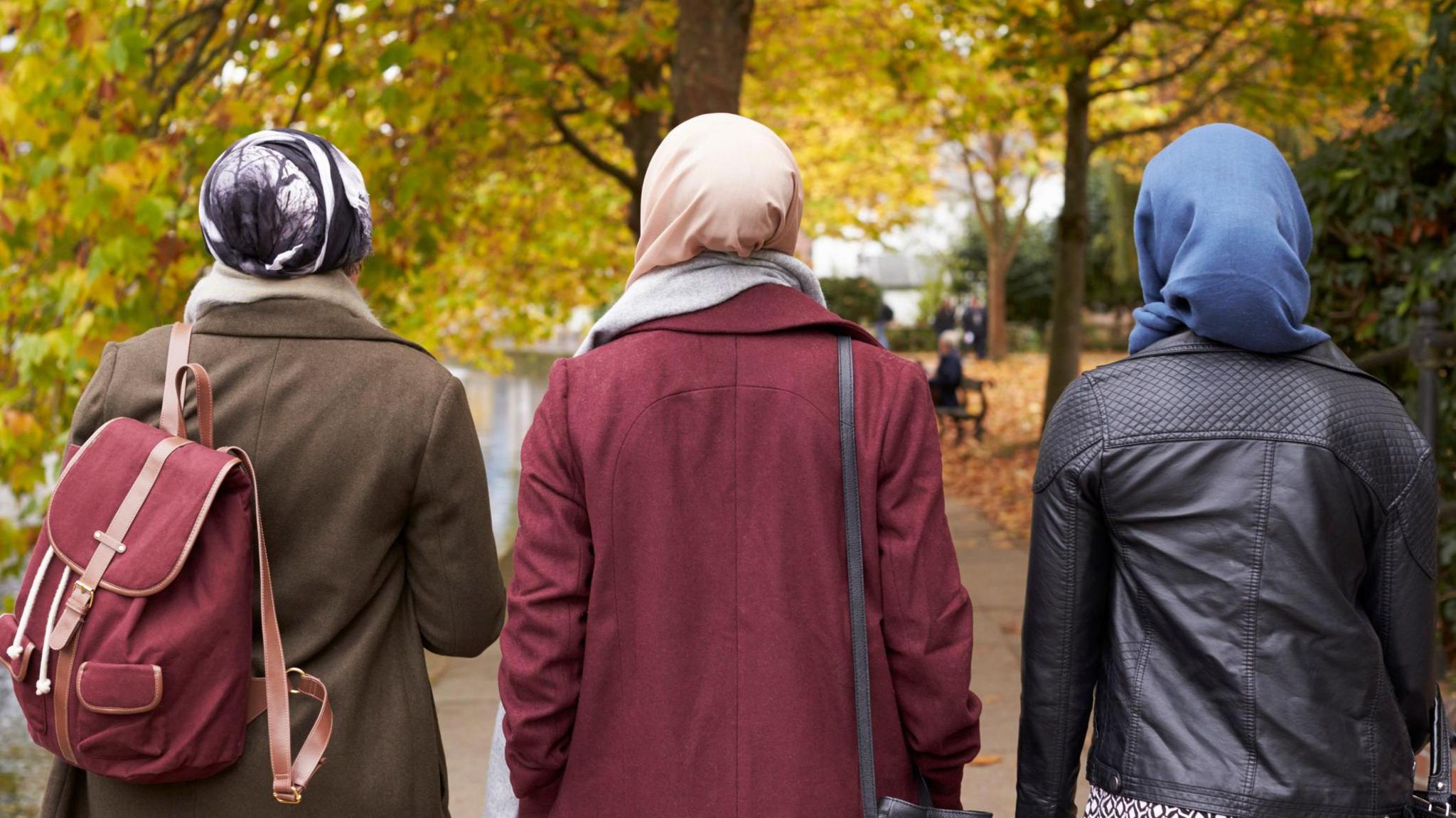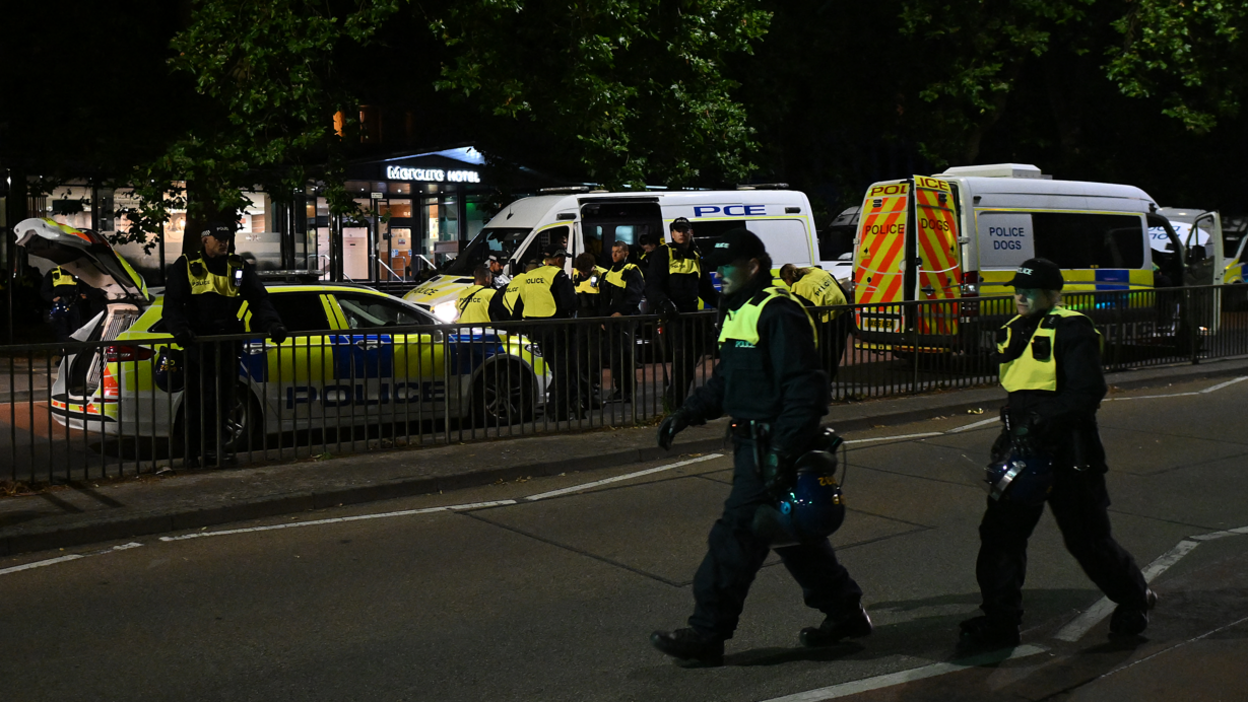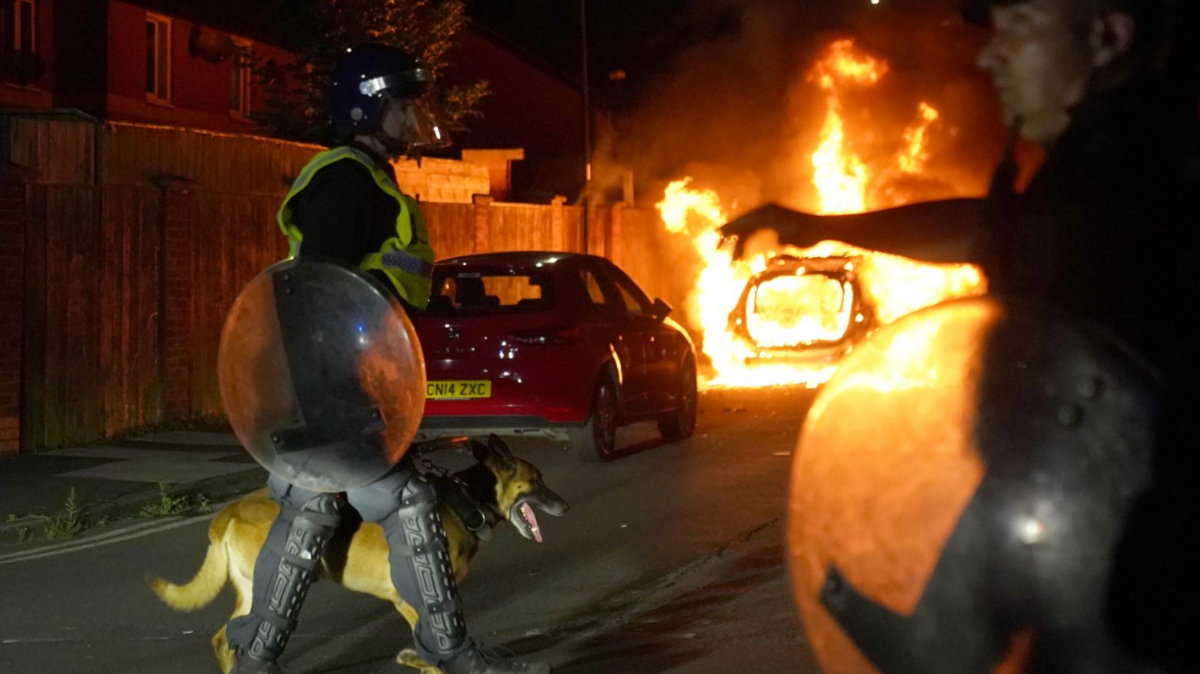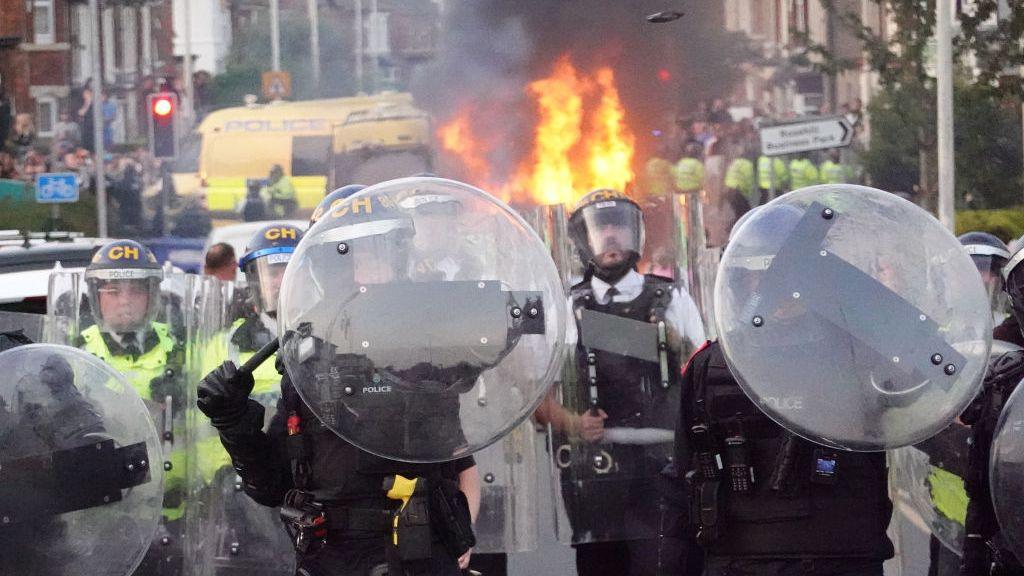Anti-Muslim hate at record level in UK, report says

More men were targeted than women last year for the first time since Tell Mama was founded in 2012
- Published
Anti-Muslim hate in the UK surged to record levels last year, an organisation tracking Islamophobia has found.
Almost 6,000 reports to Tell Mama were confirmed by it as anti-Muslim incidents, more than double the number two years ago, with men targeted more than women for the first time since the body was founded in 2012.
In its report, external the organisation said there had been a "surge in rhetoric that falsely portrays Muslims as terrorists or terrorist sympathisers" following the Israel-Gaza conflict and Southport murders.
A government spokesperson called the findings "extremely concerning" and said it would "seek to stamp out anti-Muslim hatred and racism wherever it occurs".
A total of 6,313 cases of anti-Muslim hate were recorded by Tell Mama in 2024, a 43% increase on the previous year - with 5,837 of the reports verified by the group.
The organisation, which describes itself as the leading agency on monitoring anti-Muslim hate crime, said it had documented a steep rise in offline incidents, with 3,680 cases reported - a 72% increase on the number two years ago.
The majority of the in-person cases were abusive behaviour, with Tell Mama also recording incidents of physical assault, discrimination and vandalism. Most of the attacks took place in public areas such as streets and parks, with a minority occurring in the workplace.
For the first time since Tell Mama's inception in 2012, more men than women were targeted by anti-Muslim hate and Islamophobia, the organisation said.
Tell Mama said that shift reflected "the deepening impact of harmful stereotypes that fuel societal divisions and reinforces false notions about Muslim identities".
Police separate crowds of protesters outside city mosque
- Published2 August 2024
£117m to protect mosques and Muslim schools
- Published11 March 2024
Anti-Muslim attacks surged in the UK following both the Southport murders last July and the start of the Israel-Gaza conflict in October 2023.
According to the report, more than half of the online incidents of Islamophobia last year took place after three girls were murdered at a dance class in Southport. The majority of these occurred on the social media platform X - formerly known as Twitter.
Following the murders, misinformation about the assailant's identity proliferated online, fuelling civil unrest that spread across the UK.
Axel Rudakubana, an 18-year-old born in Cardiff to Rwandan parents who had settled in Britain, is serving a minimum 52-year sentence for the murders.
Tell Mama said that there had been a "surge in rhetoric that falsely portrays Muslims as terrorists or terrorist sympathisers" since both the 7 October 2023 Hamas attacks on Israel and the 2024 riots sparked by the Southport murders.
Iman Atta, the group's director, called for coordinated action by the government and said: "As anti-Muslim hate continues to be felt by a greater number of British Muslims, both at a street and online level, our work and support for victims of anti-Muslim hate is needed now more than ever."
The public must "stand together against hatred and extremism", she said, and urged those in positions of influence to "consider how their language risks stereotyping communities and how it unduly influences discussions online and offline".
In response to the findings, the government said that "attacks on and hatred against Muslim communities are completely unacceptable and have no place in our society".
A spokesperson added: "We are absolutely determined to bridge divisions between communities and are working closely with community groups, charities, and public sector partners to tackle hatred in all its forms."
- Published30 December 2024

- Published1 August 2024

- Published31 July 2024
